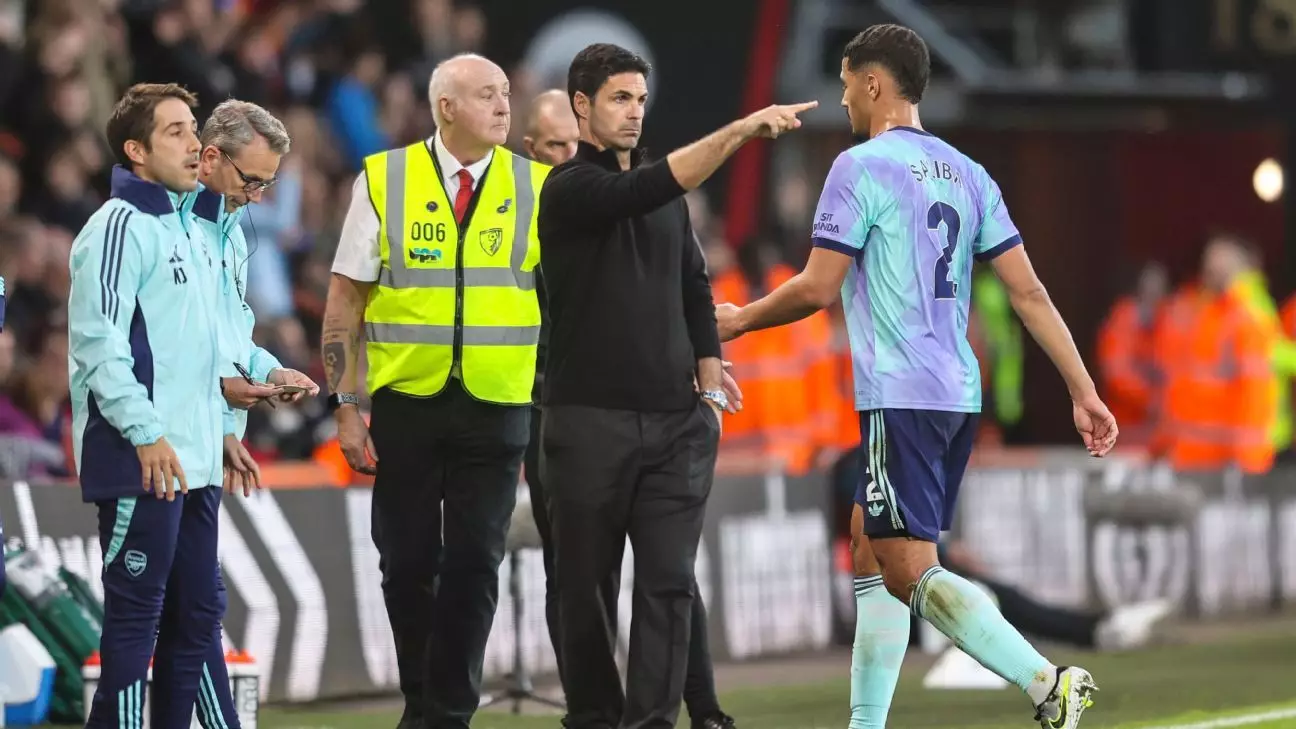Arsenal’s head coach Mikel Arteta is facing a pressing challenge this season as his team has already accumulated three red cards in just eight Premier League matches. This alarming statistic raises concerns about the players’ discipline and decision-making on the pitch. Following William Saliba’s sending-off during the 2-0 loss to Bournemouth, the reality of operating with reduced numbers has become a familiar headache for Arteta. Earlier dismissals of key players like Declan Rice and Leandro Trossard against Brighton and Manchester City respectively ensure that the issue cannot be overlooked.
Arteta’s position is clear: the team must confront and “eradicate” this pattern of ill discipline, as he emphasizes just how vital it is for success. In high-stakes games, playing with ten men can severely undermine the team’s tactical plans and morale. Arteta’s statements underline a deep-rooted problem that transcends a few isolated incidents; it reflects a wider issue within the squad that warrants immediate attention.
Learning from Pain
Reacting to the disappointing outcome against Bournemouth—Arsenal’s first league loss this season—Arteta spoke about utilizing the “pain” of defeat as motivation. While it is common for coaches to rally their players after setbacks, Arteta’s approach suggests a more nuanced understanding of the need for mental resilience. The coach recognizes that merely stating the obvious—like the need to avoid red cards—is insufficient. The real challenge lies in translating that recognition into changes on the pitch.
He acknowledged that while the reasons behind each sending-off may differ, the consequences remain the same: an undermined effort and the need for a collective reset. Drawing from past experiences, Arteta noted that even in matches where his players received red cards, they managed to salvage points. However, relying on such narrow escapes is not a sustainable tactic for a title-contending team.
The Importance of Key Players
In addition to disciplinary issues, injuries to vital players like captain Martin Ødegaard and star winger Bukayo Saka amplify Arsenal’s struggles. Ødegaard’s absence in the Bournemouth match was felt, and Arteta’s comments about Saka’s potential return for the upcoming UEFA Champions League clash against Shakhtar Donetsk signify a glimmer of hope. However, Arteta has cautioned that Ødegaard may not be available in time, which stresses the squad’s depth and resilience.
A fully fit squad is crucial for Arsenal to compete effectively at both domestic and European levels. Arteta’s task now extends beyond addressing red cards; he must also manage the fitness and integration of injured players back to the squad while reinforcing a disciplined mindset.
Ultimately, Mikel Arteta’s journey with Arsenal is fraught with challenges, but these can also serve as catalysts for growth. The current red card crisis cannot solely define the team’s season; instead, it should incite a collective response. Players must recognize the difficulty of their predicament and harness their emotional responses to forge a path forward. Only through unity, discipline, and a willingness to learn from their struggles can Arsenal hope to meet the high expectations set for them this season. The stakes are high, but the potential for redemption is limitless.

